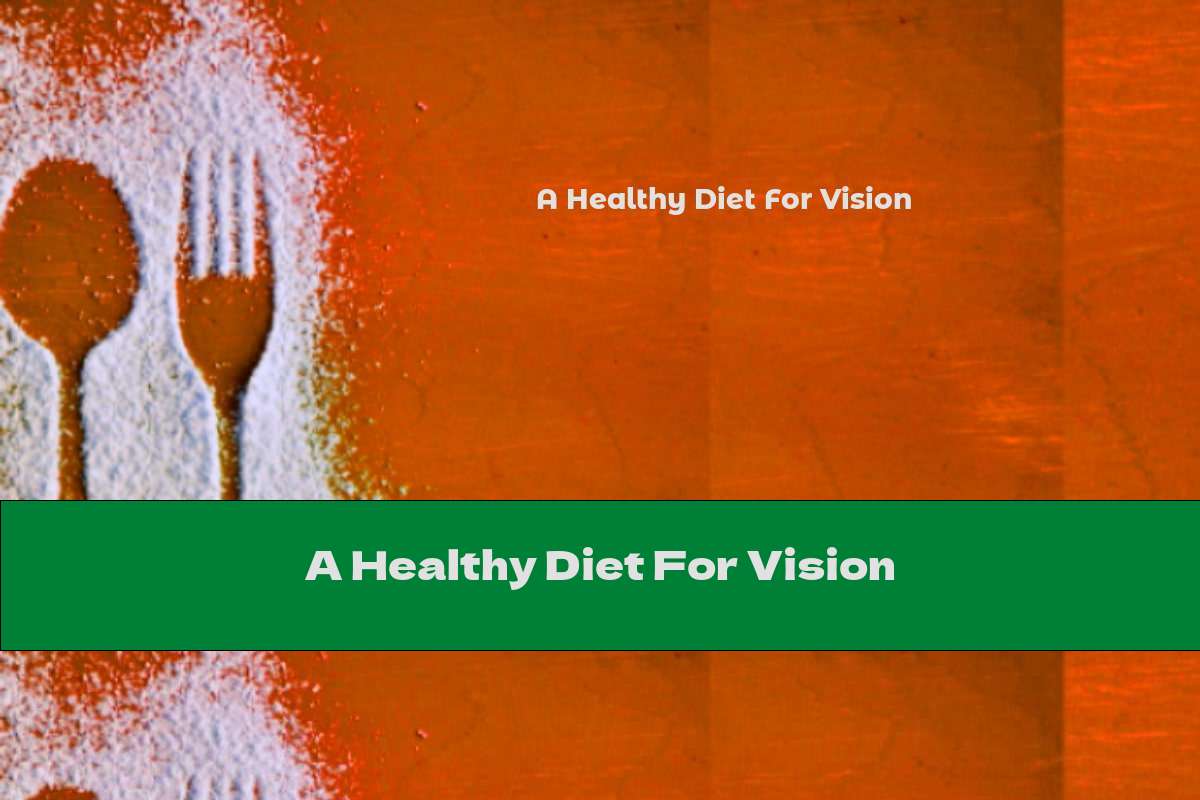A Healthy Diet For Vision
 Author: Dean Rouseberg
Time for reading: ~3
minutes
Last Updated:
February 21, 2026
Author: Dean Rouseberg
Time for reading: ~3
minutes
Last Updated:
February 21, 2026

Carrots are far from the only vegetable that can support your vision. There are at least 6 other foods that are very good for the eyes.
Carrots are far from the only vegetable that can support your eyesight. There are at least 6 other foods that are very good for the eyes.
Healthy eyes at any age
When the conversation starts about how to preserve health in old age, we first of all think about the health of the heart, brain, bones... But isn't it important to preserve good eyesight until old age? Proper nutrition is an important condition for preventing age-related eye diseases, such as macular degeneration, vision loss, dry eyes, cataracts, and night vision problems. What do you need to include in your diet to preserve your eyesight?
Dark green leafy vegetables
To prevent eye diseases, such as macular degeneration, which develop due to progressive damage to the retina, which leads to gradual loss of vision, it is necessary to include dark green vegetables in the diet, such as cabbage, spinach, leafy greens. They will provide an invaluable service to the health of your vision because they contain lutein and zeaxanthin, two important nutrients that have the function of antioxidants and help prevent cell damage.
Sweet potato and sweet potato
Bright orange fruits and vegetables get their color from beta-carotene, a precursor to vitamin A, which helps preserve vision. "Beta-carotene helps the eyes adapt to the low light levels at night," explains Sarah Coulson, a nutritionist. Also include pumpkin, carrots and apricots in your diet.
Fatty fish
Omega-3 fatty acids, found in oily fish such as salmon, sardines, tuna and mackerel, are extremely beneficial for your overall health, and your eye health in particular. A 2009 study by the National Eye Institute in the US found that omega-3 fatty acids help protect adults from age-related macular degeneration and dry eye syndrome. Rocha says this is because omega-3 fatty acids help prevent inflammation that can lead to dry eyes. He warns, however, that some omega-6 and omega-9 fatty acids can cause eye inflammation, and advises avoiding supplements containing this type of omega fatty acid.
Broccoli
Although this vegetable of the cruciferous family has long been advertised as a product that resists cancer and heart disease, it is no less important for eye health. In addition to the lutein and zeaxanthin found in broccoli, the vegetable is also rich in vitamin C. "It's a synergy of nutrients, " Colson says . - "A special combination of nutrients can reduce the course of age-related macular degeneration and vision loss."
Sprouted wheat grains
Wheat germ is an excellent source of vitamin E and an important antioxidant. "What vitamin E does is protect the eyes from the harmful effects of free radicals, " Colson says . Vitamin E may also reduce the progression of cataracts and age-related macular degeneration. You can add wheat germ to baked goods, sprinkle on oatmeal, salads, mix with cocktails. Almonds, seeds and nuts are also good sources of vitamin E.
Beans
Peas, beans, lentils and any other legumes are an easy way to add zinc to your diet. Zinc promotes the release of vitamin A in the liver, which is necessary for eye tissue, while zinc deficiency can lead to deterioration of the macula, in the center of the retina. Zinc is also found in oysters, beef, poultry and pumpkin seeds.
What about supplements?
Perhaps it will seem to someone that it is a simpler way to include in their diet not products that promote healthy vision, but food supplements that contain the necessary substances. Do not rush to the pharmacy for supplements. "I always recommend paying attention to nutrition first," says Colson . - "Food provides nutrients in the right amount. Nature took care of us in advance.
However, a number of companies make vitamins specifically for people with macular degeneration that may also be helpful. They contain antioxidant vitamins in doses indicated for patients who already have vision problems and for whom prophylaxis alone is not sufficient. But Rosha warns that you should consult an ophthalmologist about the dosage.
Overall, good health is the first line of defense when it comes to maintaining eye health.
Now that we have found out what is good for the eyes and what should be included in the diet to preserve vision, let's figure out what should be excluded from the diet or limited in consumption.
First of all, you should reduce the amount of fatty foods and foods with a high content of complex carbohydrates. This leads to a violation of general substances, excess weight, a general deterioration of blood supply, as well as a deterioration of blood supply to the choroid of the eyes. Smoking, excessive alcohol consumption and excessive exposure to sunlight can have negative effects on eye health.
Related Articles
- The Ultimate Guide to Hickory Smoked Bacon in Nutrition and Healthy Eating
- Nutritional Benefits of Fruit Skewers in Honey Syrup: A Delicious and Healthy Recipe
- Nutritional Benefits of Fruit Skewers in Honey Syrup: A Healthy and Delicious Snack
- The Nutritional Benefits of Salty Popcorn: A Healthy Snack Option
- The Nutritional Benefits of Popcorn: A Healthy Snack Option